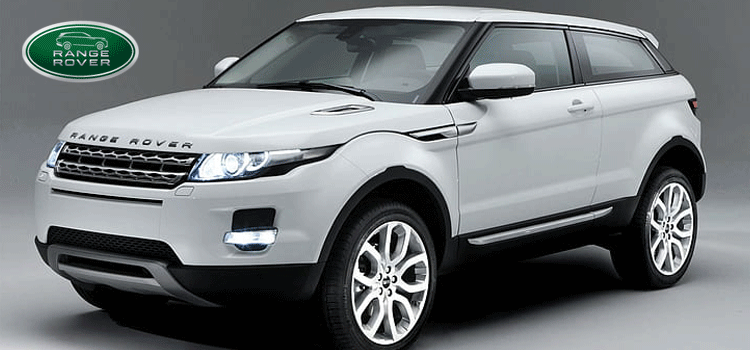
Introduction:
The Range Rover Evoque Engine 2014 Problems have troubled many owners, sparking issues about the reliability and longevity of their prized vehicles. Even though the Evoque continues to epitomize luxury and off-road brilliance, the engine troubles related to the 2014 model year have somewhat failed its once-brilliant reputation. Anyhow, despite these issues, the Evoque remains a captivating choice, with enthusiasts and specialists alike working tirelessly to tackle and overcome these challenges, guaranteeing that this legendary SUV continues to deliver an incredible driving experience.
Range Rover Evoque Engine 2014 Specifications and Their Impact:
The Range Rover Evoque Engine 2014 has a 2.0-liter turbocharged inline-four engine, producing an incredible 240 horsepower and 250 lb-ft of torque. Complemented by an advanced 9-speed automatic transmission, this setup is designed to provide effortless gear changes and excellent fuel efficiency. However, despite these latest specifications, the engine’s performance has been ruined by various Range Rover Evoque Engine 2014 Problems.
The turbocharged engine, while designed for high performance, endures notable pressure and temperature during operation. This intense environment can cause accelerated wear on its components if maintenance is not attentively performed. Also, the 9-speed transmission, though the latest, has been related to complications like delayed or harsh shifting, worsening the Range Rover Evoque Engine 2014 Problems and impacting the overall driving experience.
Understanding the Range Rover Evoque Engine 2014 Problems:
The Range Rover Evoque Engine 2014 Problems are diverse and can be quite annoying for owners. A general issue is the engine’s strange stalling, which often stems from problems with the turbocharger. This essential component, designed to enhance engine performance by forcing extra air into the combustion chamber, can fail due to factors like oil starvation or carbon buildup. When the turbocharger breaks down, it can cause a sudden loss of power, making driving both inconvenient and potentially hazardous.
Another significant concern is the wear of the timing chain. This vital part keeps the engine’s valves in sync with the pistons’ movements. When the timing chain wears out promptly, it can cause poor engine performance or even severe engine damage. Many drivers have disclosed hearing a strange noise, a clear sign of timing chain wear. These issues highlight the broader range of Range Rover Evoque Engine 2014 Problems that can affect vehicle reliability and safety.
Fixing the Range Rover Evoque 2014 Problems:
Despite the serious challenges caused by Range Rover Evoque Engine 2014 Problems, many of these problems are indeed manageable. For example, tackling the turbocharger issue generally involves either cleaning or replacing the turbocharger unit. Routine oil changes using high-quality synthetic oil can prevent oil starvation, a persistent cause of turbocharger failure. Also, installing an oil catch can help reduce carbon buildup, which further protects the turbocharger.
Timing chain wear, although critical, can be resolved by replacing the timing chain and its connected components. It’s essential to tackle this issue at the first point, like strange noise from the engine, to prevent more serious damage. Regular maintenance, including routine oil changes and using the manufacturer-suggested oil, can also prolong the timing chain’s lifespan.
Oil leaks can be managed by replacing worn seals and gaskets. Discovering the source of the leak early is necessary to avoid additional engine damage. In some examples, using a higher-viscosity oil or an oil additive designed to renew seals can help tackle minor leaks.
Preventive Measures to Avoid Future Problems with Range Rover Evoque Engine 2014 Problems:
While tackling existing issues is necessary, taking preventive measures is just as essential to avoid future problems. Routine maintenance, such as timely oil changes and detailed inspections of the engine components, can help identify potential issues before they escalate. Using high-quality oil and fuel not only extends the engine’s lifespan but also boosts performance, minimizing the likelihood of encountering general RangeRover Evoque Engine 2014 problems.
It’s also necessary for owners to consider their driving habits. Aggressive acceleration and heavy loads can place additional stress on the engine, potentially exacerbating present issues or introducing new ones. By adopting a gentler driving style and sticking to meticulous maintenance schedules, owners can remarkably minimze the risk of experiencing further Range Rover Evoque Engine 2014 problems.
Conclusions:
Even though the Problems with RangeRover Evoque Engine 2014 Problems may appear affecting, they are far from impossible to overcome. With stringent diagnostics and quick repairs, many of these issues can be effectively tackled, bringing back the engine’s reliability and performance. Routine upkeep and immediate attention to emerging problems are necessary for prolonging the engine’s lifespan and guaranteeing that the RangeRover Evoque Engine 2014 continues to provide the luxury and performance synonymous with the brand.
In spite of the challenges caused by the RangeRover Evoque Engine 2014 Problems, solutions are available, allowing the Evoque to remain a favorite vehicle for years to come.
FAQs:
What are common problems with the 2014 Range Rover Evoque engine?
Common problems are turbocharger failure and timing chain wear.
Can the turbocharger problems in the 2014 Evoque engine be fixed?
Yes, problems can be tackled by cleaning or replacing the turbocharger.
How can I prevent timing chain wear in my 2014 Evoque?
Routine maintenance and timely replacement of the timing chain can prevent wear.
What should I do if my 2014 Evoque engine is stalling?
Inspect and potentially replace the turbocharger and check for other issues.
Are oil leaks in the 2014 Evoque engine repairable?
Yes, oil leaks can be resolved by replacing seals and gaskets or using additives.


